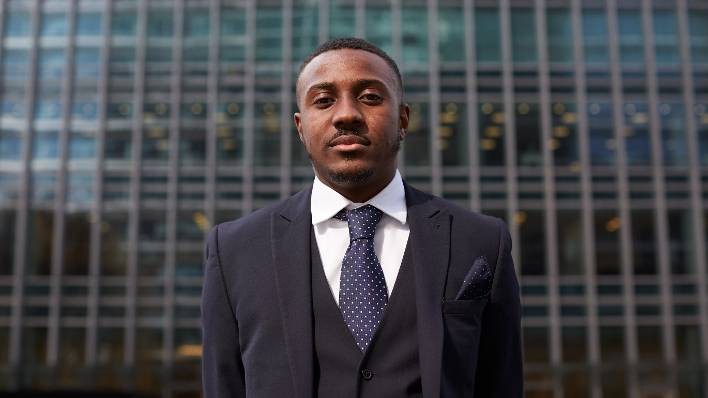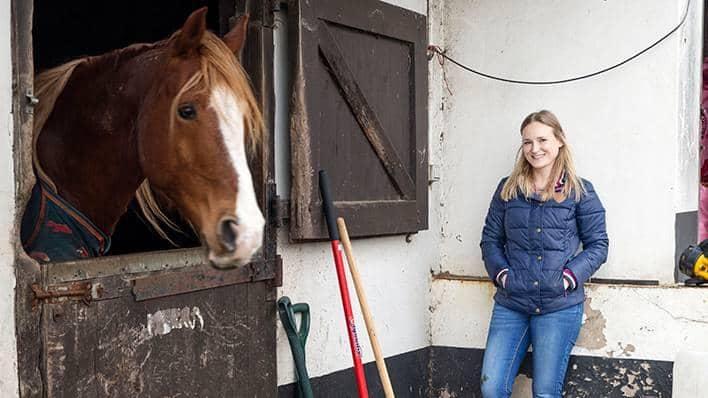
My Working Day: Bev Clarkson
Bev Clarkson is a Senior Project Manager for Barclays’ Advocacy Transformation team, based in Leeds

Krys McInnis, 24, is a Diversity and Inclusion Analyst for Barclays, working at 1 Churchill Place at Canary Wharf in London. He lives with his parents in Nunhead, South London. In the first in our My Working Day series, he talks to us about number crunching, making a difference – and playing classical trombone
My alarm goes off at 6.15am. I’ll normally get to the train station, squash onto the train, and when I get to work I’ll set myself up at my desk and get some breakfast from the canteen. By 8.15am, I’m ready to start the working day.
My working day, in some ways, starts the night before. Normally when I get home, I clear my inbox and send any emails I need to for the following day, so they’re ready for response when a colleague gets in to work. It also means that by the time I get in everything is set up and people are already responding to me, so instead of having a rushed morning it feels like I’m ahead of the game.
The thing I love most about my job is being able to have a large impact on what we’re doing as a bank, both internally and externally. I love being an active participant as we move forward creating a better environment for the bank and society.
My job involves number-crunching, analysing and planning campaigns for the Diversity and Inclusion team. We have five agendas in the bank: LGBT, disability, gender, multi-cultural, and multi-generational. We have different flagship campaigns that we focus on, for example International Women’s Day which recently passed on 8 March and our upcoming flagship days IDAHOBIT (International Day Against Homophobia, Biphobia and Transphobia) on 17 May and World Cultural Day on 21 May.
As an analyst, the main part of my job is data handling but I also help run the logistics on some of our campaigns. That’s incredible for me, because I see all aspects: by working dynamically and being able to manage both my professional and personal commitments, it means that I don’t have to always be behind my desk to get my work completed. Taken alongside the detail of work I do with numbers and graphs, it means I see the actual impact we’re having as a transatlantic bank.
The thing I love most about my job is being able to have a large impact on what we’re doing as a bank, both internally and externally. I love being an active participant as we move forward creating a better environment for the bank and society. It’s also satisfying seeing other companies wanting to get involved because they see the great work Barclays is doing. For example, seeing the work Barclays has done around mental health with This Is Me, and then expanding in partnership with the Lord Mayor’s appeal to This Is Me In The City, with the engagement of over 117 companies. Being able to play an active role in removing the barriers to allow colleagues to have conversations around a topic that historically held a vast amount of stigma is amazing. So I suppose the thing I love most about my job is just that it exists!
The most difficult part of my job is wanting to do everything. There’s so much going on in this area, and so much that the bank does but so much within society that needs to be done to deliver better diversity and inclusion, one of the hardest things is wanting to do everything and having the frustration that you can’t change it all at once.
I started working for Barclays as a cashier in 2012. I got my current job three months ago, after being recommended by my line manager. I’d been active in branches with Digital Eagles, running evening sessions for our customers, and wanted to get more involved with the community aspect of the bank. For me it was a question of how could I become a more active part of the impact? Rather than acting on initiatives, how can I actively help design, scope and scale up what the bank can do?
I’ve seen it hands-on at branch level, so I have a perspective some at head office might not. That’s made my transition good, helping me and, I hope, my team. Having branch insight has allowed us to have conversations where I can give a retail bank ‘lens’ on how an idea or the implementation of an idea would work at grassroots level.
Every day is my best day. I genuinely can’t single out a best day at work. Having the opportunity to work in my current team is incredible to me. I wake up in the morning and get the feeling that I want to go to work. In my job, I watch things start from nothing, then grow and be implemented, then see the impact and the feedback. Every day at least one of those things happens, so every day is good!
Some people might hear I work for a bank and think that’s all about making money or gaining profit, but actually there’s so much more that a bank does for the community. Barclays is in a good space there, and the team I work with drives that forward.
If I wasn’t working for Barclays, I’d be a teacher. I used to teach Religious Education to secondary school pupils. I trained as a classical trombonist too, so if banking didn’t exist I might have aimed to play professionally.
After work, as well as sorting out my emails for the next day, I like playing basketball. Unfortunately, either because I’m not tall enough or can’t jump high enough, I just can’t dunk. I’m also a box-set watcher (I’d recommend House of Cards, I’ve seen them all!). Then lights out and ready for another day.

Bev Clarkson is a Senior Project Manager for Barclays’ Advocacy Transformation team, based in Leeds
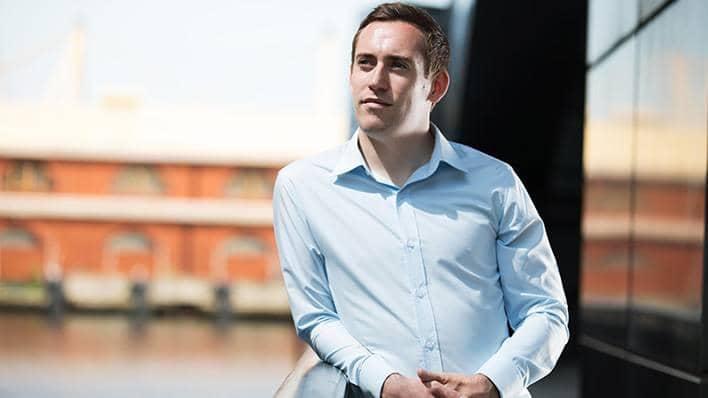
Matt Valentine works in the CEO’s office at Barclays UK and has responsibility for relationships between the bank, venture capital and fintechs
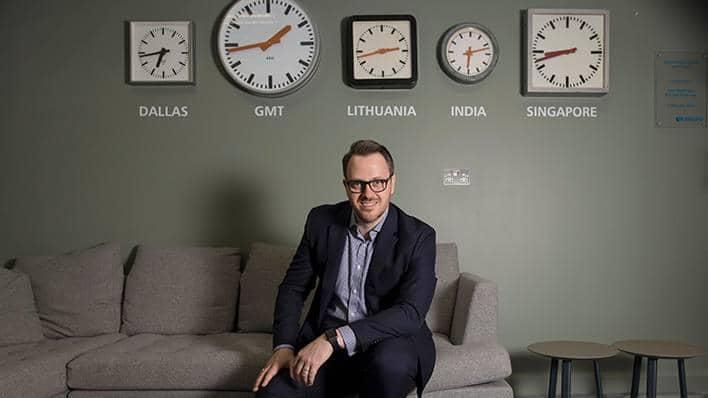
Andy Piper, 36, Director, Service Governance and Control at Barclays, is based at the bank’s Radbroke Technology Centre in Knutsford, Cheshire
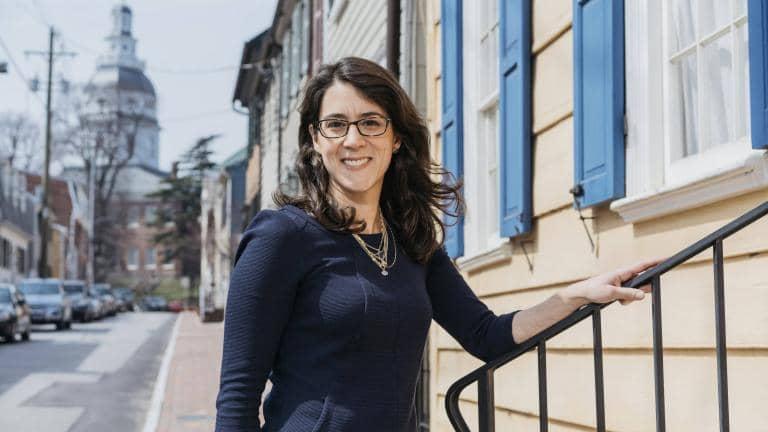
Carolyn Crooks is Managing Director at Barclays Investment Bank in New York. She lives in Annapolis, Maryland with her three children and husband Mark. She works from home one to two days a week, spending the remainder in New York
